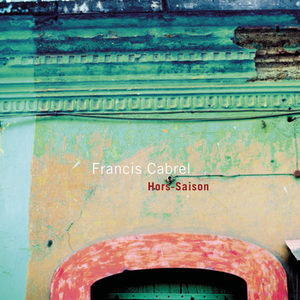Cent Ans de plus
Francis Cabrel Lyrics
Jump to: Overall Meaning ↴ Line by Line Meaning ↴
Chercher des miettes sous les tables avant que les blancs ne marchent dessus
Dormir sur des paquets de planches
Chanter mais seulement le dimanche
Oh, tu vois la femme noire
Dans le rôle de la bonne
Avec tout à côté
Tout tordu son bonhomme
C'est eux qui ont fait
Eux qui ont fait
Son House et Charlie Patton
Howlin' Wolf et Blind Lemon
Bien rouge le sang de l'Afrique sur la jolie fleur du coton
La toute nouvelle Amérique, la belle démocratie "welcome"
Bateaux déportant les villages
Au bout de l'immense voyage
Gravé dans la mémoire
Pour des années-lumière
Chaque larme d'ivoire et chaque collier de fer
Après ça faut pas que tu t'étonnes
C'est eux qui ont fait
Eux qui ont fait
Son House et Charlie Patton
Ma Rainey et Robert Johnson
Toujours plaire aux marchands de fantômes, c'est eux qui ont fait
Elle qu'on achète et lui que l'on donne, c'est eux qui ont fait
Naître avec la peine maximum, c'est eux qui ont fait
Mais toujours vivant dans ce que nous sommes, c'est eux qui ont fait
Ce peuple interdit du reste des hommes, c'est eux qui ont fait
Cherchant le bleu des anciens royaumes, c'est eux qui ont fait
C'est eux qui ont fait faut pas que ça t'étonne
(Eux qui ont fait) Son House et Charlie Patton
Ma Rainey et Robert Johnson
Son House et Charlie Patton
Son House et Charlie Patton
Ma Rainey et Robert Johnson
The lyrics of Francis Cabrel's song Cent Ans De Plus depict the struggles and oppression faced by African Americans throughout history. The song begins with the line "Cent ans dans la peau de l'esclave et juste après cent ans de plus," which roughly translates to "One hundred years in the skin of a slave and just one hundred years more." This line highlights the long-standing history of slavery and segregation in the United States, and the ongoing struggles faced by the African American community.
Throughout the rest of the song, Cabrel describes the numerous injustices and hardships faced by African Americans, such as having to "chercher des miettes sous les tables avant que les blancs ne marchent dessus" (looking for crumbs under tables before white people walk on them) and being forced to "Dormir sur des paquets de planches" (sleeping on bundles of planks). He also references the role of African American women as domestic workers ("Oh, tu vois la femme noire / Dans le rôle de la bonne / Avec tout à côté / Tout tordu son bonhomme").
Cabrel then goes on to name several African American musicians ("Son House et Charlie Patton / Howlin' Wolf et Blind Lemon / Ma Rainey et Robert Johnson") and suggests that the struggles and pain they experienced in their lives were what inspired their music.
Overall, Cent Ans De Plus is a poignant and powerful commentary on the ongoing struggles faced by the African American community, and how these struggles have informed and influenced African American culture throughout history.
Line by Line Meaning
Cent ans dans la peau de l'esclave et juste après cent ans de plus
One hundred years in the skin of a slave and just one hundred more to follow
Chercher des miettes sous les tables avant que les blancs ne marchent dessus
Scavenging crumbs from under tables before the white people step on them
Dormir sur des paquets de planches
Sleeping on bundles of planks
Chanter mais seulement le dimanche
Singing, but only on Sundays
Oh, tu vois la femme noire
Oh, you see the black woman
Dans le rôle de la bonne
Playing the role of the maid
Avec tout à côté
With everything within reach
Tout tordu son bonhomme
All twisted, her man
Après ça faut pas que tu t'étonnes
After that, you shouldn't be surprised
C'est eux qui ont fait
It's them who have done it
Son House et Charlie Patton
Son House and Charlie Patton
Howlin' Wolf et Blind Lemon
Howlin' Wolf and Blind Lemon
Bien rouge le sang de l'Afrique sur la jolie fleur du coton
The blood of Africa vividly red on the pretty flower of cotton
La toute nouvelle Amérique, la belle démocratie "welcome"
The brand new America, the beautiful "welcome" democracy
Bateaux déportant les villages
Boats deporting entire villages
Au bout de l'immense voyage
At the end of the immense journey
Gravé dans la mémoire
Engraved in the memory
Pour des années-lumière
For light years
Chaque larme d'ivoire et chaque collier de fer
Every tear of ivory and every iron collar
Toujours plaire aux marchands de fantômes, c'est eux qui ont fait
Always pleasing the merchants of ghosts, it's them who have done it
Elle qu'on achète et lui que l'on donne, c'est eux qui ont fait
Her who is bought and him who is given away, it's them who have done it
Naître avec la peine maximum, c'est eux qui ont fait
Being born with the maximum amount of pain, it's them who have done it
Mais toujours vivant dans ce que nous sommes, c'est eux qui ont fait
But always living in who we are, it's them who have done it
Ce peuple interdit du reste des hommes, c'est eux qui ont fait
This people forbidden from the rest of humanity, it's them who have done it
Cherchant le bleu des anciens royaumes, c'est eux qui ont fait
Seeking the blue of ancient kingdoms, it's them who have done it
C'est eux qui ont fait faut pas que ça t'étonne
It's them who have done it, don't be surprised
(Eux qui ont fait) Son House et Charlie Patton
(Them who have done it) Son House and Charlie Patton
Ma Rainey et Robert Johnson
Ma Rainey and Robert Johnson
Son House et Charlie Patton
Son House and Charlie Patton
Lyrics © O/B/O APRA AMCOS
Written by: Francis Cabrel
Lyrics Licensed & Provided by LyricFind
